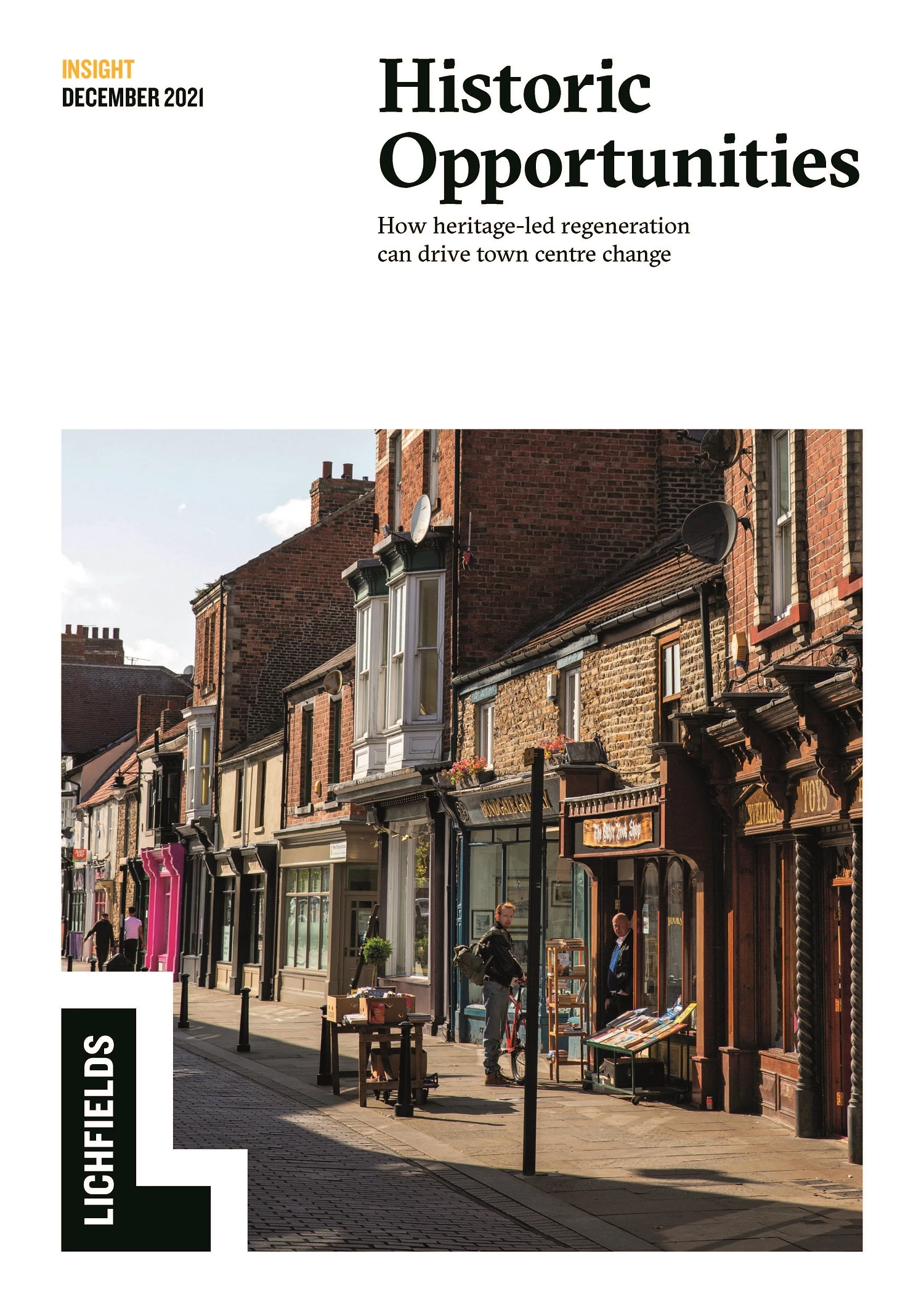
Partner Article
New report says North Shields is a heritage led regeneration success story
North Shields is a ‘great’ example of how far-sighted heritage funding can secure a brighter future for historic towns, according to a new report produced by local planning and development consultancy Lichfields.
The ‘Historic Opportunities’ report says that millions of pounds worth of funding is set to revitalise the character of its Georgian and Victorian buildings as part of a long-term regeneration strategy, which has already delivered transformative change and revealed a rich heritage at North Shields’ Fish Quay.
This includes a £900,000 High Streets Heritage Action Zone grant to cover a four-year programme of physical improvements within the Northumberland Square Conservation Area and Howard Street. This is being supported by a further £1 million investment from the local council.
The report considers how long-term thinking and a holistic approach to regeneration are key to the success of North Shields, recognising that the most effective way to plan for strong and vibrant future high streets and town centres is through projects focused ‘more than ever’ on repurposing heritage assets in ambitious and creative ways to meet society’s changing needs.
Embedding heritage-led regeneration in this way harnesses investment’s potential to inspire action and promote initiatives as well as delivering more effective and sustainable regeneration results.
The report comes at a time of changing fortunes for historic towns and sheds light on the environmental, economic and social contributions that heritage-led regeneration can deliver long-term for hundreds of locations across the country.
James Fryatt, planner and heritage consultant at Lichfields Newcastle office and the report’s lead author, said: “Heritage-led regeneration projects need to be focused more than ever on reusing assets in ambitious and creative ways to respond to people’s changing lifestyle, work and shopping habits. In the high street for instance, this will see historic buildings increasingly adapted to reflect changes in retail and growing demand for leisure activities, creative and flexible workspaces, and housing in sustainable and accessible locations.
“It’s also about bringing the history of towns to the surface, engaging communities in heritage projects and enhancing places with the aim of attracting new businesses, visitors and residents.”
Nick Bridgland, Lichfields’ heritage director, added: “This is an important report and comes at a time of rapid change for our historic towns. Heritage-led investment must be far more dynamic because it’s such a valuable tool for regeneration. The key to long-term success is to see it as part of an overarching holistic approach embedded within wider programmes of investment aimed at revitalising places that have been left behind.
“There are many positives on the horizon and our report points to a successful future for those historic towns that take advantage of the available funding and adopt a fresh approach to heritage-led regeneration work.”
Almost half of the current buildings in retail use and 33% of office buildings were built before 1919 with many of these suffering from chronic neglect or having been poorly adapted in response to various cycles of economic and social change. However, while targeted investment in the restoration and reuse of heritage assets to deliver wider economic and social benefits is not a new approach, the report finds that the way heritage-led regeneration is being implemented has evolved and is now far more complex and multi-layered.
The report highlights that the tendency to think that simply restoring historic buildings and adding new shopfronts and usable floorspace will be enough to deliver regeneration and attract new occupiers, has given way to more effective heritage-led regeneration projects that are predicated on clearer business and investment strategies. These are designed to complement and form an embedded part of wider investment programmes, which are aimed at improving local economies through investment in infrastructure, new industries and technologies.
This was posted in Bdaily's Members' News section by Lichfields .
Enjoy the read? Get Bdaily delivered.
Sign up to receive our daily bulletin, sent to your inbox, for free.




 test article 123456789
test article 123456789
 hmcmh89cg45mh98-cg45hm89-
hmcmh89cg45mh98-cg45hm89-
 test456456456456456456
test456456456456456456
 test123123123123123123
test123123123123123123
 test xxxdiosphfjpodskhfiuodsh
test xxxdiosphfjpodskhfiuodsh
 Savour the flavour: North Tyneside Restaurant Week returns for 2024
Savour the flavour: North Tyneside Restaurant Week returns for 2024
 Six steps to finding the right buyer for your business
Six steps to finding the right buyer for your business
 Stephen signs off on a special night
Stephen signs off on a special night
 Life’s a Peachaus: Gillian Ridley Whittle
Life’s a Peachaus: Gillian Ridley Whittle
 Making a splash: Phil Groom
Making a splash: Phil Groom
 Making workplace wellbeing a priority
Making workplace wellbeing a priority
 A record of delivery, a promise of more: Ben Houchen
A record of delivery, a promise of more: Ben Houchen